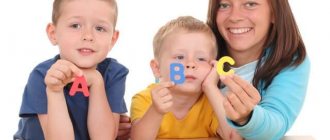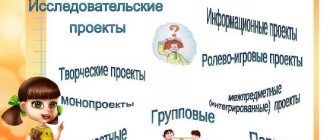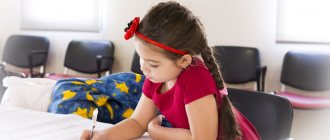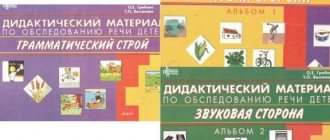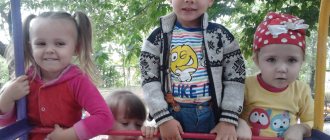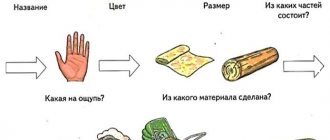Updated July 22, 2021 657 Author: Dmitry Petrov
Hello, dear readers of the KtoNaNovenkogo.ru blog. Today we will continue to introduce you to the terminology that exists in the Russian language.
In our “great and powerful”, almost all words can be classified into some category - depending on their origin, purpose, education, and so on.
Today we will talk about PROFESSIONALISM. Of course, first of all, many people know this word as a synonym for good work. It is about experienced and valuable employees that they say that they have a high level of professionalism.
But there is also the concept of PROFESSIONALISM in linguistics.
Professionalism is...
Professionalism is a group of words or expressions that are characteristic of a particular group of people involved in a particular field, or related to one profession.
Sometimes these words emerge from a certain “narrow circle” and begin to be used en masse. But some PROFESSIONALISM remain little known.
Well, for example, we all know exactly what antibiotics are. These are medicines that have a very strong effect and help with various colds.
But the word itself has a medical origin and came out of this area. That is, previously only doctors used it, but at some point it became publicly available.
But the word “Snow Maiden” in medical language means a person who has a low temperature. It sounds funny, of course. But if you hear from a doctor, “This Snow Maiden just doesn’t want to get better,” you’re unlikely to understand what they’re talking about.
Examples of professionalisms
To make it even clearer, let's give other examples.
As we have already said, PROFESSIONALISM exists in absolutely every field of activity or profession .
Let's look at the most famous ones.
Medicine
Here is an example of well-known PROFESSIONALISM:
- scalpel - a sharp knife for operations;
- vaccine is a preventive medicine against viruses;
- injection is a professional synonym for injection;
- hematoma - people simply say “bruise”;
- diagnosis - determining what exactly a person is sick with;
- resuscitation - a set of measures to restore vital functions;
- symptom – various signs of a disease.
Even the names of specific types of doctors can be considered PROFESSIONALISM. Previously, everyone was simply called a doctor - general, children's, eye, ear, dental, heart, and so on.
And now a therapist, pediatrician, ophthalmologist (what kind of doctor is this?), ENT, dentist, cardiologist and many others.
But these are words that only a doctor will understand :
- Lyuska is a patient infected with syphilis;
- Deadwood is a person who has been in the hospital for a very long time;
- Skiers are patients who walk poorly and therefore shuffle their feet;
- Parachutist – a patient who received fractures in a fall;
- Coal is a patient with burns.
In general, doctors are known for their “professional humor,” which is often very dark. But nevertheless, this is just an example of such PROFESSIONALISM.
Sailors and pilots
A couple more professions in which there is a lot of PROFESSIONALISM. And most of them are understandable only to a certain circle of people .
Among the famous ones we can remember:
- Chapat is synonymous with a sea voyage;
- Landing stage - a vessel permanently moored at the pier;
- Fly around - get used to the plane.
And a completely different matter:
- Beska - a cap without a visor;
- Certificate – duffel bag;
- The jacket is an officer who did not graduate from a naval university;
- Under-smear and over-smear - not reaching a certain point or flying over it;
- Goat - a small jump of the plane during landing;
- A bubble is a weather balloon that is shaped like a ball.
Intuitively, some PROFESSIONALISM can be understood. Especially in the context of some kind of proposal. But some words remain a mystery to the uninitiated.
For example, sailors say the word “helicopter” and you will never guess what it means. But in fact, this is the name of the shovel used to clear snow on the deck.
Teacher's Glossary
Adapted educational program
— an educational program adapted for training persons with disabilities, taking into account the characteristics of their psychophysical development, individual capabilities and, if necessary, providing correction of developmental disorders and social adaptation of these persons.
Amplification
- enrichment of child development.
Variable part of the main general education program of preschool education
- this is part of the main general educational program of preschool education, formed by participants in the educational process in addition to the invariant one, and reflecting: 1) the diversity of institutions (groups), the presence of priority areas of activity; 2) the specifics of socio-economic, national-cultural, demographic, climatic and other conditions in which the educational process is carried out.
Environmental Variability
— the presence in the Organization or Group of various spaces (for play, construction, privacy, etc.), as well as a variety of materials, games, toys and equipment that ensure the free choice of children; periodic change of play material, the emergence of new objects that stimulate the play, motor, cognitive and research activity of children.
Age adequacy of preschool education
— compliance of conditions, requirements, methods with the age and developmental characteristics of children.
Pupils
— persons mastering the educational program of preschool education, persons mastering the basic general education program while simultaneously living or staying in an educational organization.
Environment Availability
— accessibility for pupils, including children with disabilities and children with disabilities, of all premises where educational activities are carried out; free access for children, including children with disabilities, to games, toys, materials, and aids that provide all basic types of children’s activities; serviceability and safety of materials and equipment.
Preschool childhood
- flexibility, plasticity of the child’s development, a high range of options for his development, his spontaneity and involuntariness.
Preschool educational organization
- an educational organization that, as the main goal of its activities, carries out educational activities in educational programs of preschool education, supervision and care for children.
Motor activity of the child
- mastery of basic movements.
Play activity
- role-playing game, game with rules and other types of games.
Visual form of child activity
- drawing, modeling, applique.
Individualization of education
— supporting the child, building his educational trajectory or professional correction of his developmental characteristics.
Individualization of preschool education
— building educational activities based on the individual characteristics of each child, in which the child himself becomes active in choosing the content of his education, becomes a subject of education.
Innovation activity
is focused on improving the scientific-pedagogical, educational-methodological, organizational, legal, financial-economic, personnel, material and technical support of the education system and is carried out in the form of the implementation of innovative projects and programs by organizations engaged in educational activities and other organizations operating in the field of education, as well as their associations.
The quality of education
— a social category that determines the state and effectiveness of the educational process in society, its state, the needs and expectations of society, individual social groups in the development and formation of an individual’s life, professional, and civic competencies. The quality of education is determined by a set of indicators that characterize various aspects of the educational activities of an institution: the content of education, forms and methods of teaching, material and technical base, personnel, etc., which ensure the education of children.
Communication activities
- communication and interaction with adults and peers.
Correctional work and/or inclusive education
–
1) ensuring the correction of developmental disorders of various categories of children with disabilities, providing them with qualified assistance in mastering the Program;
2) development of the Program by children with disabilities, their diversified development, taking into account age and individual characteristics and special educational needs, social adaptation.
Logistics of the program
— educational and methodological kit, equipment, equipment (items).
Mechanisms of child development
— communication, play, cognitive and research activities.
Musical form of child activity
- perception and understanding of the meaning of musical works, singing, musical-rhythmic movements, playing children's musical instruments.
Education
- a single purposeful process of education and training, which is a socially significant benefit and carried out in the interests of the individual, family, society and the state, as well as the totality of acquired knowledge, skills, values, experience and competence of a certain volume and complexity for the purposes of intellectual, spiritual - moral, creative, physical and (or) professional development of a person, satisfaction of his educational needs and interests.
Educational areas of preschool education:
social and communicative development; cognitive development; speech development; artistic and aesthetic development; physical development.
Educational programs
– programs aimed at solving the problems of forming a general culture of the individual, adapting the individual to life in society, creating the basis for informed choice and mastering professional educational programs. This includes programs of preschool education, primary general education, basic general education, secondary (complete) general education - state documents characterizing the content of education and aimed at achieving educational levels determined by the state.
Educational programs for preschool education are being developed
and are approved by the organization carrying out educational activities in accordance with the federal state educational standard of preschool education and taking into account the relevant exemplary educational programs of preschool education.
Educational programs of preschool education are aimed at
on the diversified development of preschool children, taking into account their age and individual characteristics, including the achievement by preschool children of a level of development necessary and sufficient for their successful mastery of educational programs of primary general education, based on an individual approach to preschool children and specific to preschool children age of activities.
Educational activities
— activities for the implementation of educational programs.
Educational environment
– the totality of the educational process, the features of its organization, as well as its programmatic and methodological, educational and material, material and technical, psychological, pedagogical, medical and social support (including a subject-development environment, TSE, medical support, nutrition).
Educational environment for a preschool child
—
1) subject-spatial developmental educational environment;
2) the nature of interaction with adults;
3) the nature of interaction with other children;
4) the child’s system of relationships to the world, to other people, to himself.
Education
— a purposeful process of organizing students’ activities to master knowledge, skills, abilities and competence, gain operational experience, develop abilities, gain experience in applying knowledge in everyday life and form students’ motivation to receive education throughout their lives.
student
- an individual studying an educational program.
Student with disabilities
- an individual who has deficiencies in physical and (or) psychological development, confirmed by a psychological-medical-pedagogical commission and preventing them from receiving education without the creation of special conditions.
Main characteristics of preschool education
— volume, content and planned results in the form of targets for preschool education.
Pedagogical diagnostics
- assessment of the individual development of preschool children, related to the assessment of the effectiveness of pedagogical actions and underlying their further planning.
Teaching worker
- an individual who has a labor or service relationship with an organization engaged in educational activities and performs duties for training, educating students and (or) organizing educational activities.
Cognitive development
involves the development of children's interests, curiosity and cognitive motivation; formation of cognitive actions, formation of consciousness; development of imagination and creative activity; the formation of primary ideas about oneself, other people, objects of the surrounding world, about the properties and relationships of objects of the surrounding world (shape, color, size, material, sound, rhythm, tempo, quantity, number, part and whole, space and time, movement and rest , causes and consequences, etc.), about the small homeland and Fatherland, ideas about the socio-cultural values of our people, about domestic traditions and holidays, about planet Earth as the common home of people, about the peculiarities of its nature, the diversity of countries and peoples of the world.
Cognitive and research activities
- researching objects in the surrounding world and experimenting with them.
Polyfunctionality of materials
— varied use of various components of the object environment, for example, children's furniture, mats, soft modules, screens, etc.; the presence in the Organization or Group of multifunctional (not having a strictly fixed method of use) objects, including natural materials, suitable for use in various types of children's activities (including as substitute objects in children's play).
Continuity between preschool and primary education levels
- this is the connection and consistency of each component of education (goals, objectives, content, methods, means, forms of organization), ensuring the effective progressive development of the child, his successful upbringing and training at these levels of education.
Approximate basic educational program - educational and methodological
documentation (approximate curriculum, approximate academic calendar schedule, approximate work programs of academic subjects, courses, disciplines (modules), other components), defining the recommended volume and content of education of a certain level and (or) a certain focus, planned results of mastering the educational program, approximate conditions of educational activities, including approximate calculations of standard costs for the provision of public services for the implementation of the educational program.
Babysitting and childcare
— a set of measures to organize nutrition and household services for children, ensuring their compliance with personal hygiene and daily routine.
Psychological diagnostics of child development
— identification and study of individual psychological characteristics of children.
Psychological, pedagogical, medical and social assistance includes:
1) psychological and pedagogical counseling of students, their parents (legal representatives) and teaching staff;
2) correctional, developmental and compensatory classes with students, speech therapy assistance to students;
3) a complex of rehabilitation and other medical measures.
Developmental educational environment
— a system of conditions for the socialization and individualization of children.
Speech development
includes mastery of speech as a means of communication and culture; enrichment of the active vocabulary; development of coherent, grammatically correct dialogical and monologue speech; development of speech creativity; development of sound and intonation culture of speech, phonemic hearing; acquaintance with book culture, children's literature, listening comprehension of texts of various genres of children's literature; formation of sound analytical-synthetic activity as a prerequisite for learning to read and write.
Self-worth of childhood
- understanding (considering) childhood as a period of life that is significant in itself, without any conditions; significant because of what is happening to the child now, and not because this period is a period of preparation for the next period.
Social and communicative development
aimed at mastering the norms and values accepted in society, including moral and moral values; development of communication and interaction of the child with adults and peers; the formation of independence, purposefulness and self-regulation of one’s own actions; development of social and emotional intelligence, emotional responsiveness, empathy, formation of readiness for joint activities with peers, formation of a respectful attitude and a sense of belonging to one’s family and to the community of children and adults in the Organization; the formation of positive attitudes towards various types of work and creativity; formation of the foundations of safe behavior in everyday life, society, and nature.
Special educational conditions
— special educational programs, methods and means of teaching, textbooks, teaching aids, didactic and visual materials, technical means of teaching for collective and individual use (including special ones), means of communication and communication, sign language translation in the implementation of educational programs, adaptation of educational institutions and their surroundings territories for free access of all categories of persons with disabilities, as well as pedagogical, psychological, pedagogical, medical, social and other services that provide an adaptive educational environment and a barrier-free living environment, without which it is difficult for persons with disabilities to master educational programs.
Means of training and education
— instruments, equipment, including sports equipment and equipment, instruments (including musical), educational and visual aids, computers, information and telecommunication networks, hardware, software and audiovisual tools, printed and electronic educational and information resources and other material objects, necessary for organizing educational activities.
Transformability of space
— changes in the subject-spatial environment depending on the educational situation, including the changing interests and capabilities of children.
The level of education
— a completed cycle of education, characterized by a certain unified set of requirements.
Federal State Educational Standard
— a set of mandatory requirements for education of a certain level and (or) for a profession, specialty and area of training, approved by the federal executive body exercising the functions of developing state policy and legal regulation in the field of education.
Federal State Requirements
— mandatory requirements for the minimum content, structure of additional pre-professional programs, conditions for their implementation and terms of study for these programs, approved in accordance with this Federal Law by authorized federal executive bodies
Physical development
includes gaining experience in the following types of children’s activities: motor, including those associated with performing exercises aimed at developing such physical qualities as coordination and flexibility; promoting the correct formation of the musculoskeletal system of the body, the development of balance, coordination of movement, gross and fine motor skills of both hands, as well as the correct, non-damaging to the body, execution of basic movements (walking, running, soft jumps, turns in both directions), the formation initial ideas about some sports, mastering outdoor games with rules; formation of focus and self-regulation in the motor sphere; the formation of healthy lifestyle values, mastery of its elementary norms and rules (in nutrition, physical activity, hardening, in the formation of useful habits, etc.).
Artistic and aesthetic development
involves the development of prerequisites for the value-semantic perception and understanding of works of art (verbal, musical, visual), the natural world; the formation of an aesthetic attitude towards the surrounding world; formation of elementary ideas about types of art; perception of music, fiction, folklore; stimulating empathy for characters in works of art; implementation of independent creative activities of children (visual, constructive-model, musical, etc.).
Preschool education targets
represent social-normative age characteristics of a child’s possible achievements at the stage of completing preschool education. They are not the basis for an objective assessment of compliance with the established requirements of educational activities and training of children.
Experimental activities
is aimed at the development, testing and implementation of new educational technologies, educational resources and is carried out in the form of experiments, the procedure and conditions for which are determined by the Government of the Russian Federation.
Professionalism in business
Businessmen also have their own language. And it also contains a lot of incomprehensible words. But some still become popular:
- Cash – money, mostly paper;
- Non-cash – payment by credit card or transfer of money using banking and mobile services;
- A startup is a newly created company that is just beginning its journey in business and is associated with some kind of innovation (how is that?);
- Team building (how is that?) – work to unite the company’s employees into one friendly team;
- Manager (who is this?) – the person responsible for sales. Now the range of responsibilities for this profession has expanded significantly
- Bitcoins are a virtual currency.
But the expression “turn on the counter” or “white rollback” are more specific. The first means “raise the interest rate”, and the second means the commission to the intermediary.
Heartfelt congratulations on Teacher's Day in your own words
Happy Teacher's Day and all preschool workers. The education of all generations is in your hands and in your power, you open the doors for children to the land of happy childhood and dreams, you give children the necessary knowledge and opportunities to show their talents. With all my heart I wish you never to lose the kindness of your heart and inspiration for your work. Be happy and healthy.
Thank you for your work, difficult and sometimes invisible. Thanks to your love for kids, your sincere care and professionalism, it is much easier for us, parents, to raise children. We wish you an inexhaustible source of strength, health, inspiration and creativity! Happiness, warmth, prosperity to your families!
Dear teachers and all preschool workers! Parents trust you with the most precious thing they have - their children. You surround your children with warmth, care, and smiles. I would like to thank you and wish you to be surrounded by the love and warmth of your loved ones, so that a smile always shines on your face. Happy holiday!
Being a teacher is a real calling. And even though your work is not at all easy, you do it perfectly. On your professional holiday, I would like to thank you for your warmth, care and attention to our children. I sincerely wish you good health, prosperity, patience, success, happiness and joy.
Today, on Teacher's Day, let me congratulate you with all my heart and express my sincere gratitude for your noble work! It is you who, coming to work every day, give children not only your love and warmth, but also invest valuable knowledge in them, help them become inquisitive, kind, smart and happy. Thank you for your work, we appreciate, are proud and wish you happiness! Happy holiday!
We all need your work so much. People of different professions trust you every morning with raising their children. You fully cope with your mission, giving children not only knowledge and skills, but also care and warmth. Your students feel your kind attitude towards them. And, believe me, with warmth in their hearts, they will remember the years spent next to you, many years from now. Thank you for everything!
Dear educators! The results of your work are not immediately visible. It bears fruit after many years. However, having met your students by chance on the street or read about them in a printed publication, you are filled with pride in your work. You want every grain you sprouted to become a strong shoot that can become a cultivated plant. Low bow to you for all your efforts and efforts! Thanks to you, our world becomes more humane, kinder, brighter. You are the foundation of our hearts. Glory to all preschool workers and teachers! Hooray! Hooray! Hooray!
Our dear and respected teachers and all kindergarten staff! On your professional holiday, we would like to say warm words of gratitude to you and wish you good health, good spirits and a positive mood! And also great patience and endless love for our little mischief-makers! And let them give you moments of happiness and fun. Be happy and let material problems pass you by. Love, respect, joy and happiness for many years to come!
Programmers and gamers
People who work with computers or constantly use them also have their own specific language.
From understandable PROFESSIONALISM:
- A flash drive is a portable mini-data storage device;
- User is an active computer user (how is that?) who spends a lot of time on it;
- Social networks, mobile applications, telegram channel, video hosting and websites - everything that fills the Internet today;
- Internet - even this word itself is PROFESSIONALISM;
- Freeze - suddenly stop working;
- Glitches are synonymous with errors;
- Save – save at a certain stage of the game;
- Gamer (who is this?) – a person who is interested in computer games;
- Likes and reposts (how is that?) are special marks on social networks.
It is interesting that many words from the computer sphere have acquired additional meaning in everyday speech.
For example, we can say about a person that he is “stuck,” “slowing down,” or “caught a glitch.” And everyone will understand that we are talking about very slow work or actions of this person or that he made a mistake.
Here are examples of uncommon PROFESSIONALISM :
- Tower – a computer case with a characteristic shape;
- Malware or Malicious - a computer virus;
- A soap dish is a very simple device from a technical point of view;
- The truck is a pumped up and strong character in computer games;
- Bot (what is it?) are characters in computer games that are not controlled by people.
Touching congratulations on Teacher's Day in your own words
Maybe it’s just become familiar to us, But we can’t help but see it, That teachers usually have tired eyes in the evening... We know what it is, Children are a restless swarm! You won’t find peace here with just one person, let alone with such a crowd. This one is funny, and this one looks askance, There the fighter is already starting a fight... And the questions? Thousands of questions... And everyone requires an answer. How much affection and care is needed, To hear everyone, to understand everyone... Grateful and difficult work Constantly replacing mom... Mom is not worried at work... Children's voices are cheerful... After all, they are always watching over the kids Kind tired eyes. The day is over... Not all songs are sung. The children's sleep is not disturbed... So take a bow from the whole planet, For the children, take a bow from us!!!
Our dear teacher! On this day, allow me to congratulate you on the professional holiday of all who are rightly called the blacksmiths of human souls and creators of new people. Your work is immeasurable and incomparable with other types of activity: someone deals with soulless machines, someone with empty words, and you deal with living people, and thanks to you they become cleaner, brighter, better. Those who came to you foolish and cocky now proudly say that they were your students. Let the flow of their gratitude, which you deserve in full, not become scarce! Happy holiday! Happy Teacher's Day!
Today the whole world celebrates Teacher's Day. If anyone thinks that there is no need to celebrate such a day, then they are very mistaken. Because this holiday is actually very important. Think about what you do when you have to go to work and have no one to leave your children with. That's right, you immediately take your child to kindergarten. And there the teacher begins to teach your child and look after him. And you probably know how difficult it is to look after children. And therefore, educators, we sincerely congratulate you from the bottom of our hearts and wish you all the best. Let everything in your life turn out the way you want it! Be proud of yourself and your profession. Thank you very much. And finally, we want to wish you all the best.
Happy Teacher's Day and all preschool workers. I wish you to smile every day, have fun, rejoice and believe in miracles, like a child. Let your work take you to the wonderful world of dreams and fairy tales, let your life be kind, happy and colorful. I wish you health, patience, encouragement and great daily inspiration.
Dear teachers and kindergarten workers! We congratulate you and wish you to always be healthy, so that your spirit is cheerful and cheerful! A kind heart to you, great patience and great love for our little mischief-makers! Be happy, live in abundance, joy and prosperity!
Please accept our sincere congratulations on Teacher's Day! Thanks to your love for kids, your sincere care and professionalism, it is much easier for us, parents, to raise children. Happiness, warmth, prosperity to your families!
Only a person who truly loves them can work with children. A man with a big noble heart and a pure soul. Our work is not easy, but how much joy you get looking into these little carefree eyes! Let your life be simply filled with the love of your family and the respect of your students and their parents. Let your energy not run out, and let optimism help you achieve all the most difficult tasks in life. Creative success in such a noble cause!
Our dear teachers and everyone who takes part in the lives of our children! We cordially congratulate you on your professional holiday! We wish you wonderful students, loyal parents, prosperity and success in your hard work! Dedication to you and patience, love and understanding! Let your work be appreciated, and let your payment be high and stable!
Motorists
Driver is also a profession. Therefore, this area also has its own words, which for the most part are known to most people. Well, simply because many people now have cars.
- The steering wheel is synonymous with the steering wheel;
- Automatic and manual – short designations for automatic and manual gearboxes, respectively;
- Spare wheel – spare wheel;
- Technical inspection is a special procedure for any car owner;
- Separate lane - a dedicated lane for public transport;
- Tuning - decorating the basic configuration through changes in design or painting;
- Tinting - darkening windows.
- Street racers are street racers.
